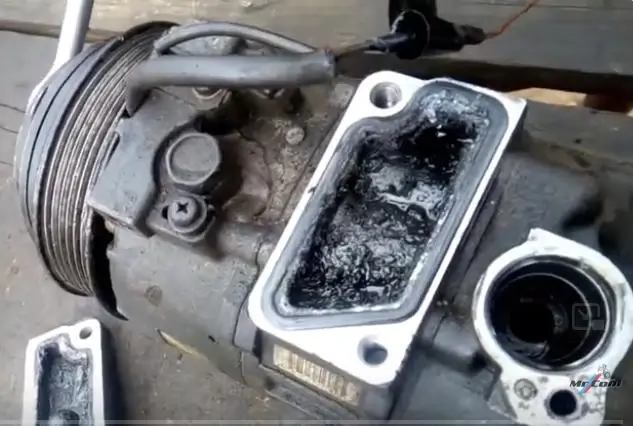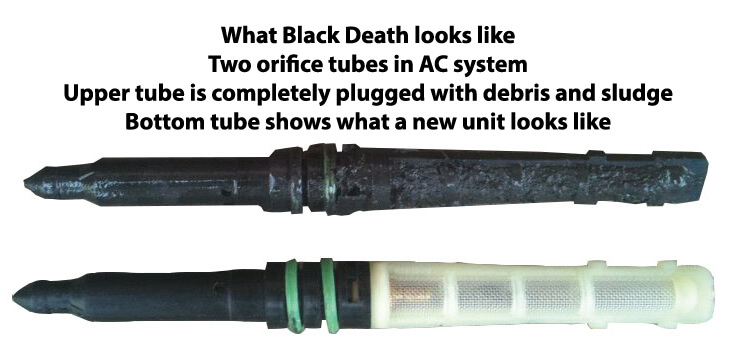Common Car AC Problems and How to Fix Them
Here are the five most common causes of car AC problems
Car AC problems are caused by just 5 things: low refrigerant levels caused by leaks, compressor issues, moisture in the AC system, a clogged condenser or inoperative condenser fans, or electrical issues.
Refrigerant Leaks are the #1 cause of auto AC failure
When refrigerant leaks out of the system, cooling efficiency drops significantly. Over time, hoses and seals can deteriorate, leading to gradual refrigerant loss. Once that happens, a car’s AC system can leak refrigerant from rubber seals, hoses, joint connections, or even the condenser itself. Detecting and repairing these leaks promptly is crucial to maintaining a properly functioning air conditioning system.
The refrigerant carries the oil throughout the system to lubricate the compressor seals. When refrigerant leaks out, so does some oil. Once you lose oil, you start to wear the compressor. If you add more refrigerant from an AC recharge kit, you’ll get colder air, but unless you replace the oil you lost, your system is headed for an early grave.
Compressor Issues are the 2nd leading cause of car AC problems
The compressor is often referred to as the heart of the air conditioning system. It pressurizes the refrigerant and circulates it through the system. Compressor failure can stem from various issues, the most important being lack of lubrication due to a refrigerant leak. But an AC compressor can also fail due to a clutch issue, pulley bearing, front shaft seal leak, bad flow valve or just plain wear and tear.
As a compressor wears due to lack of lubrication, the metallic wear particles spread through the system. Any air in the system causes the particles to oxidize and turn black, which is why this type of compressor failure is referred to as black death.
Moisture in the system is the 3rd most common cause of car AC problems
Any time air enters the system, it carries moisture in as well. Moisture reacts with the refrigerant and oil to form an acidic emulsion that not only coats the inside of the condenser and evaporator but also starves the compressor for lubrication.
Moisture can cause the expansion valve to freeze shut, preventing cooling and it the emulsion sludge it creates can clog the screen on orifice tube systems.
A Clogged or Dirty Condenser or Non-functioning radiator fans are the 4th leading cause of car AC problems
The condenser is responsible for releasing heat from the refrigerant, allowing it to cool down and flow back into the cabin. Over time, dirt, debris, and contaminants can accumulate on the condenser’s fins, hindering its heat exchange efficiency. A clogged or dirty condenser can result in reduced cooling performance and cause the system to struggle in maintaining the desired temperature. Also, if the radiator fans aren’t operating properly, pressure in the condenser will rise to the point where the high pressure switch shuts off the compressor.
Electrical Malfunctions cause car AC problems
Modern auto air conditioning systems are complex and reliant on electronic components. Electrical malfunctions, such as blown fuses, faulty sensors, relays, or wiring problems, can disrupt the system’s functioning. For instance, a malfunctioning temperature sensor might inaccurately gauge the cabin temperature, causing the system to behave erratically.
Click here to learn how to diagnose and fix your car’s AC yourself
©, 2023 Rick Muscoplat
Posted on by Rick Muscoplat

